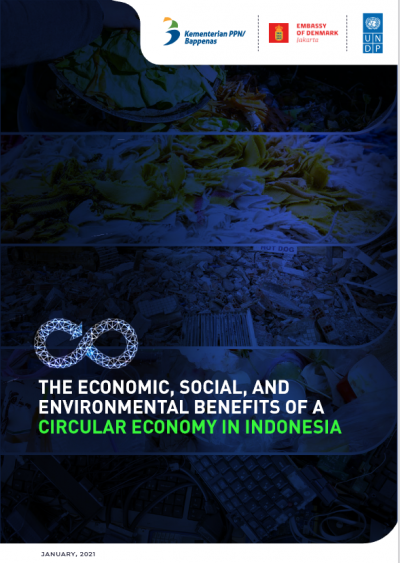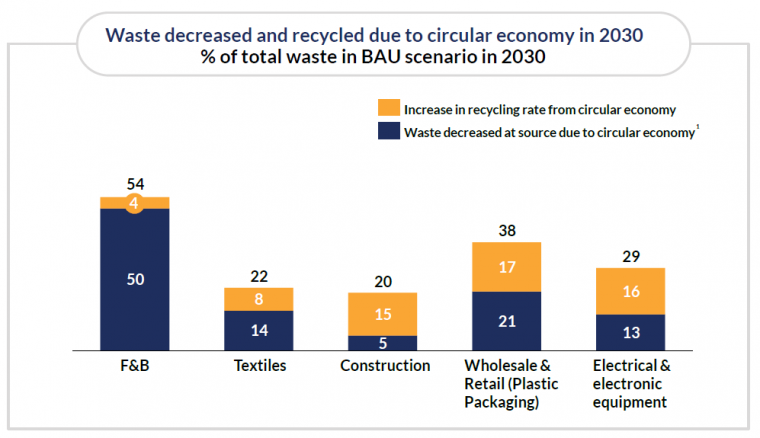Entering a decade towards the sustainable development goals and the target of reducing greenhouse gas (GHG) emissions of Paris Agreement by 2030, the Government of Indonesia is further strengthening its commitments and efforts in overcoming economic, social and environmental problems through a low carbon development and circular economy.

The circular economy could further increase the Indonesian GDP impact with 2.3 to 2.5 percent by 2030, save 126 million tonne CO2e, create 4.4 millon additional jobs while creasing significant savings in houseohold expenditures.

Indonesia has adopted the Circular Economy concepts into its vision and development strategies. Vision Indonesia 2045 has elaborated on the Circular Economy concepts as the policy going forward. As an initial step in implementing the circular economy concept, the Government of Indonesia in collaboration with the United Nations Development Program with the support of the Danish Government has established an analysis study of the environmental, economic, and social potential for the implementation of a circular economy in Indonesia in 5 industrial sectors, namely food and beverages, construction, electronics, textiles, and plastics. This circular economy development study will be followed by further development stages, such as developing the National Action Plan and including the circular economy in the next National Medium Term Development Plan (RPJMN) 2025-2029
The project was implemented by Alpha Beta, Systemiq, Landscape Indonesia, Indonesia Business Council for Sustainable Development and the Indonesia Circular Economy Forum.
Shifting Paradigms provided recommendations to drafts of the report and the underlying system dynamic models and supported UNDP and the Government of Indonesia with strategic guidance throughout the project.



